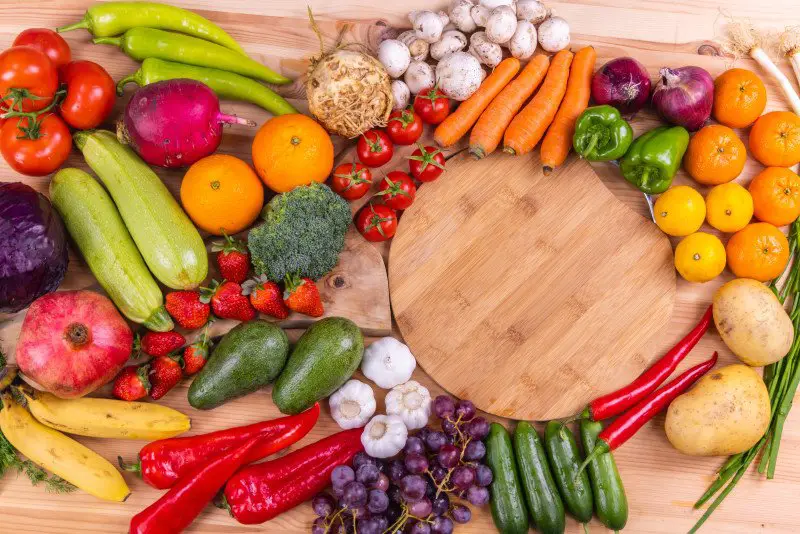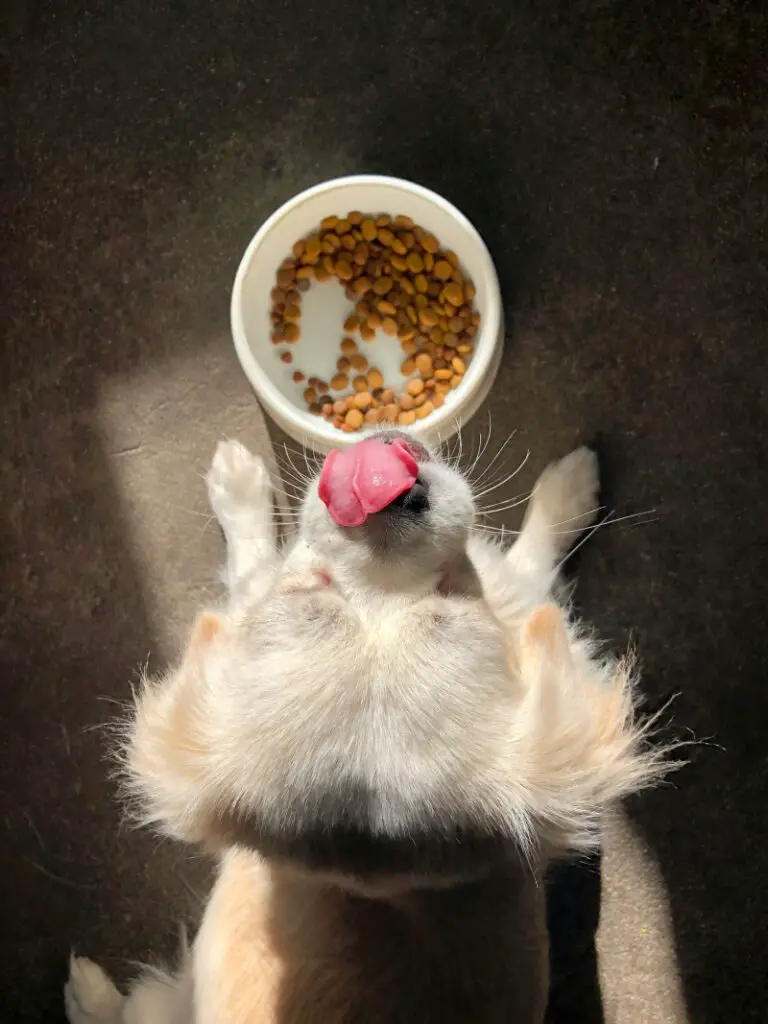Even amidst the joy of welcoming a new puppy into your household, it’s integral to remember that your cute, playful companion has unique dietary needs and it’s essential to know the right food for your puppy. Proper nutrition plays an indispensable role in a puppy’s growth stages and overall health. With the right dietary choices, your puppy can avoid health complications, grow stronger, and have its lifetime lengthened− positively affecting their energy levels, teeth, coat, and immune system.
Selecting the best food for your puppy from countless puppy food brands can seem a daunting task. Each puppy varies in size, breed, and also has a different metabolism and activity level. It’s no surprise that one-size-fits-all doesn’t apply when it comes to puppy feeding.
For the new pet owner, this might raise questions like “What nutrients does my puppy need?” or “How much should I feed them?” or even “When should I switch to adult food?”. These are valid concerns, especially when the nutritional requirements of puppies are significantly different from those of adult dogs. To ensure the healthy growth and happiness of your young canine friend, it’s crucial you balance their need for protein, carbohydrates, fats, and essential vitamins/minerals.
Puppyhood is the time when your little pet requires more than just love and care. They need a balanced diet that adequately fuels their rapid growth. Let’s dive deeper into understanding the specifics of puppy nutrition and the best ways to meet those needs.
Table of Contents
Components of Ideal Puppy Food
Understanding the building blocks of puppy food can guide you through the process of choosing the right puppy from reputable puppy food brands. Whether we talk about small breed puppies or those of the big and cute puppy breeds, these nutrient requirements remain constant.
Essential Nutrients Necessary for Puppy Growth
Protein Requirements
Protein forms the cornerstone of a puppy’s diet, indispensable for the proper growth and development of baby animal dogs. It helps build muscle, bone, skin, blood, and body tissue. On average, dry puppy food should contain at least 22% protein. Given their high-protein diet, it becomes critical to opt for premium brands that use real meat instead of fillers or by-products.
To understand why protein is so critical, it’s important to delve into what protein actually does for a growing puppy. Proteins, made up of amino acids, are often referred to as the building blocks of life. In puppies, they are essential for creating new cells, repairing tissues, and promoting healthy growth. Young dogs are particularly active, and protein is crucial in supporting their high energy needs.
There are different sources of protein in dog food, including chicken, beef, fish, and plant-based options like peas and lentils. Each source offers a unique composition of amino acids, which is why a variety of protein sources can be beneficial. It’s important to check the ingredients list on puppy food to ensure the main source of protein is from actual meat and not meat by-products, which are of lower nutritional quality.
Moreover, the digestibility of protein is an important factor. This refers to how easily a puppy can break down and utilize the protein. Animal-based proteins tend to be more digestible for dogs than plant-based proteins. Premium puppy foods often highlight the digestibility of their products, which is a good indicator of quality.
When selecting a puppy food, look for ones that meet the nutritional standards set by the Association of American Feed Control Officials (AAFCO). These standards ensure that the food contains the right balance of nutrients, including protein, for your puppy’s stage of life.
Importance of Fats and Oils
Fats and oils contribute to your puppy’s energy levels and are crucial for maintaining healthy skin and a shiny coat. They provide essential fatty acids that the body can’t produce on its own. This nutrient should represent approximately 8% of dry puppy food. Pay attention, though, since excessive consumption might lead to an unhealthily chubby puppy faced with obesity-related complications.
Fats are not just about energy; they also play a vital role in cell structure and function. They are necessary for the absorption of fat-soluble vitamins (A, D, E, and K) and provide insulation and protection for internal organs. The essential fatty acids, like omega-3 and omega-6, are particularly important for a puppy’s brain development and overall health.
The source of fats and oils in puppy food matters significantly. High-quality sources include fish oil, flaxseed, and chicken fat. These ingredients provide a healthy balance of essential fatty acids. Lower quality fats, often found in cheaper dog foods, may come from undefined sources and can contain a less beneficial fatty acid profile.
It’s crucial to maintain a balance in fat intake. While necessary for health, excessive fat can lead to weight gain and related health issues, particularly in breeds prone to obesity. Monitoring your puppy’s weight and adjusting their food intake accordingly is essential. Regular veterinary check-ups can help you determine if your puppy’s diet is supporting their health needs appropriately.
In addition, some puppies may have specific dietary needs or sensitivities. For example, certain breeds might require a higher or lower fat content in their diet based on their metabolic rate and activity level. Always consult with a veterinarian to understand the unique dietary requirements of your puppy’s breed.
When choosing a puppy food, it’s as important to look at the quality of fats and oils as it is to evaluate the protein content. A well-balanced diet with high-quality ingredients will support your puppy’s growth, energy levels, and overall well-being. As with proteins, opt for foods that comply with AAFCO guidelines, ensuring a balanced and nutritious diet for your growing puppy.
Role of Vitamins and Minerals
The Necessity of Calcium and Phosphorous
Playful puppy behavior is powered by strong bones and teeth, for which Calcium is very important. Alongside Phosphorous, it also plays a role in blood coagulation and contributes to nerve impulse transmission. It’s worth noting that an excessive or deficient amount of these in your puppy’s diet could lead to developmental and skeletal problems.
Calcium is crucial for the development of healthy bones and teeth in puppies. It works in conjunction with phosphorous to ensure proper growth and maintenance of the skeletal system. This balance is vital; an imbalance can lead to health issues such as rickets (in cases of deficiency) or skeletal problems (in cases of excess). The ideal calcium-to-phosphorus ratio in a puppy’s diet should be about 1.2 parts of calcium for every 1 part of phosphorus.
Puppies, especially large breeds, are particularly sensitive to this balance. Excess calcium can cause rapid bone growth, leading to joint problems and an increased risk of hip dysplasia. This is why feeding a puppy food specifically formulated for their growth requirements is essential. These formulations are designed to provide the right balance of calcium and phosphorus, along with other nutrients.
Phosphorus also plays a critical role in your puppy’s health. It’s involved in the formation of bones and teeth and is essential for the body to utilize carbohydrates and fats. Additionally, phosphorus works with B vitamins to aid in kidney function, muscle contractions, and maintaining a regular heartbeat.
It’s also important to understand the sources of these minerals in puppy food. Calcium is commonly found in dairy products, fish with bones, and certain vegetables. Phosphorus is present in meats, eggs, and fish. High-quality puppy foods are formulated to include these minerals in the correct proportions, negating the need for supplements in most cases.
Benefits of Specific Vitamins

Different vitamins contribute to various aspects of puppy health— Vitamin A to vision, Vitamin D to bone formation, Vitamin E and C to boosting immunity, and B Vitamins to metabolic support. It’s important to size your puppy’s vitamin requirement appropriately, though, since anything in excess might turn harmful.
Vitamin A is essential for proper vision, especially in low light conditions. It also supports skin health and is crucial for immune function. Natural sources of Vitamin A in puppy diets include liver, fish oil, eggs, and certain vegetables like carrots.
Vitamin D, often known as the “sunshine vitamin,” is vital for regulating the balance of calcium and phosphorous in the body. This makes it essential for bone and teeth development. Puppies usually get their Vitamin D from sunlight exposure and their diet, with foods like fish and egg yolks being good sources.
Vitamin E is an antioxidant that helps in combating free radicals in the body, thereby supporting immune function and preventing oxidative stress. It can be found in vegetable oils, nuts, and green leafy vegetables.
Vitamin C, although not usually required in the diet of healthy puppies (as they can synthesize it themselves), can be beneficial in stressed or ill puppies. It’s an antioxidant that supports the immune system and is involved in collagen synthesis.
The B Vitamins, including thiamine, riboflavin, niacin, pantothenic acid, pyridoxine, biotin, folic acid, and B12, play a crucial role in a puppy’s metabolism. They help in energy production, enzyme function, and red blood cell formation. These vitamins are found in a variety of foods, including meat, grains, and legumes.
While these vitamins are essential, it’s important to remember that an excess of fat-soluble vitamins (A, D, E, and K) can be toxic. Water-soluble vitamins (C and B) are less likely to accumulate to toxic levels but can still cause problems in excess. Therefore, it’s important to feed a balanced diet specifically formulated for puppies, as this will provide the right amount of vitamins and minerals for healthy growth and development.
Need for Hydration
Water Requirement for Puppies
A puppy’s body is about 80% water, so keeping them hydrated is paramount. Pay close attention to your puppy’s drinking habits, ensure they have constant access to fresh, clean water, and encourage regular drinking.

Ways to Keep Puppies Hydrated
Alongside clean water, moisture-rich food and broths also contribute to hydration. Special attention is only needed in times of sickness or during warm weather, where risks of dehydration magnify. Take care to monitor your puppy’s water intake and output, particularly during these periods.
Pets are the charm of our lives, and dealing with a new puppy comes with its fair share of responsibility− be it understanding their puppy vaccination schedule, following puppy training tips, or getting a grasp on the puppy adoption process. Above all that, though, is the responsibility towards their nutrition. Catering to this aspect might seem challenging at first, but knowing basic pet care slowly unfolds the path towards a happy and healthy puppy!
Types of Puppy Food
The market is awash with different puppy food brands, each catering to the nutritional needs of your pet. However, merely finding responsible breeders and choosing the right puppy is not enough. Understanding which food type suits your puppy best is just as important. Here we’ll discuss dry food, wet food, raw meals, and homemade meals.
Comparing Dry Food and Wet Food
Taste and Nutritional Differences Between Dry and Wet Food
Dry food, also known as kibble, is often favored due to being more cost-effective and having a longer shelf life. It may be appropriate for house training puppies as it can help maintain better dental health. On the other hand, wet food is generally more palatable, smells more attractive to puppies, and its high water content aids hydration—invaluable to small breed puppies and those of specific cute puppy breeds.
Digestibility of Both Types of Food
Wet food, more akin to a natural diet, can be easier to digest for your pet. Dry kibble, while also providing balanced nutrition, may require increased water intake due to lower moisture content. It’s essential to follow a properly planned puppy feeding schedule in either case.
Raw Meal Plans for Puppies
Benefits of Raw Food Diet
A raw food diet, sometimes referred to as Biologically Appropriate Raw Food (BARF), is an alternative many are looking at as a means to mimic a dog’s natural, ancestral diet. Raw diets may lead to shinier coats, healthier skin, improved dental health, and heightened energy levels.
Possible Issues with Raw Food Diet
While a raw diet has its benefits, it doesn’t come without its downsides. Raw food risks include bacterial contamination, an unbalanced diet if not correctly formulated, and greater chewing hazards. It’s essential to discuss with a veterinarian if you’re considering this route.
Homemade Meals for Puppies
Pros and Cons of Homemade Meals
Homemade meals allow control over what your puppy is eating, avoiding artificial additives present in commercial foods. However, preparing a balanced meal can be time-consuming and complex– vitally important during the pivotal puppy growth stages.
Possible Dangers of Feeding Human Foods
As much as your puppy’s hopeful eyes might convince you, human food isn’t fit for dog consumption. Certain foods are toxic, like chocolates, grapes, onions, and caffeine-based products, to name a few. Puppies also require different nutrient concentrations than humans, which normal family meals won’t provide.
The decision to get a pet often comes with diligent research about puppy adoption process, reading up on puppy training tips, understanding puppy vaccination schedules, and more. However, being armed with knowledge about their diet helps ensure lifelong health and happiness for your four-legged friend.
Factors to Consider When Choosing Puppy Food
In your journey of pet care basics, whether that includes house training puppies or understanding the puppy adoption process, catering to their dietary needs tops the responsibility list. Here we discuss the key factors to consider when choosing food for your puppy.
Puppy’s Breed
Special Diets for Different Breeds
An important aspect to consider is choosing food based on your puppy’s breed. Different breeds can have varying nutritional requirements. For instance, small breed puppies might burn off energy quicker than larger breeds and require higher calorie food.
Connection Between Breed Size and Growth Rate
Breed size and growth rate are inextricably linked. Cute puppy breeds that grow into larger dogs have long puppy growth stages and require balances of specific nutrients to support skeletal development. Smaller breed puppies mature faster, which means they might transition to adult dog food earlier.
Puppy’s Age, Weight, and Activity Level
How These Factors Affect the Puppy’s Nutritional Needs
Age, weight, and activity level all influence the nutritional requirements of puppies. Like human infants, baby animal dogs experience rapid growth and development early in life, necessitating higher protein and caloric intake— all to be balanced with their escalating activity levels as they grow.
Adjusting Feed Quantity Based on These Factors
Puppy feeding schedules should reflect their age, weight, and activity levels. Puppies generally need to be fed more often, with the feed gradually reduced as they grow older. Active puppies might require more energy-rich food given they burn more calories.
Health Condition of the Puppy
Special Diet for Puppies with Certain Health Issues
When it comes to caring for puppies, individual health condition nudges its way to the foreground. For instance, puppies facing digestive issues may need a diet laden with probiotics. Other conditions, like allergies or joint issues, also warrant nutritional adjustments.
Allergies and How They Can Be Managed Through Diet
It’s vital to note that puppies, like their human counterparts, can suffer from food allergies. If your puppy exhibits symptoms like constant itching, skin irritation or digestive upset, checking for potential food allergens becomes a priority. You’ll need to work with your vet to identify the culprit and adjust the diet accordingly.
In conclusion, bringing a puppy home requires commitment— commitment that involves understanding them, from the ins and outs of their playful puppy behavior to presenting them with a potent, balanced diet through careful selection from available puppy food brands. It’s a fulfilling journey, though, as you watch your little furball blossom into a healthy, energetic friend for life.
Selecting the Right Food for Your Puppy
Picking the ideal food for your puppy is a process that involves vigilance and proactive learning. The wealth of available choices—right from puppy food brands to types of food—may seem overwhelming. However, armed with knowledge and an understanding of your puppy’s needs, you’ll gradually feel more confident in your decisions.
Seeking advice from a trusted vet usually yields worthwhile recommendations. A vet’s insight, backed by their professional understanding of animal health and nutrition, can illuminate what specifically your puppy might need in their diet. They could guide you in adjusting macronutrient ratios, managing allergies through diet, or simply choosing from the expanse of commercial diets available. Veterinary guidance is the cornerstone when you start on this journey of puppy care after the puppy adoption process.
Yet, your puppy’s own response to different foods plays an instrumental role in the final selection. Closely observing your puppy’s likes, dislikes, and any changes in behavior or physiology when introduced to a new diet gives vital empathy-guided insights.
At the end of the day, any food change should be gradual to avoid digestive upsets, particularly in baby animal dogs. Remembering that all puppies, included those of cute puppy breeds, are unique individuals with varying needs, helps tailor your care approach towards them. As your puppy transitions into an adult, these needs will change, but an established foundation of a balanced diet ensures longevity, vibrancy, and overall health, keeping them lively and filled with playful puppy behavior and the right food for your puppy.
The role of a pet parent embarks you on a journey of love, care, shared joys, and indeed responsibilities. But with the right choices and dedication, this journey will only foster a bond that lasts a lifetime with your furry friend.




